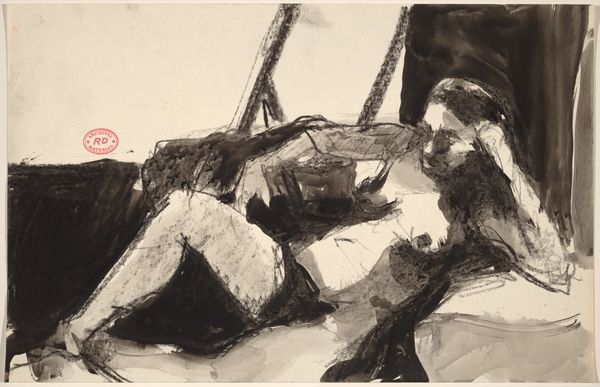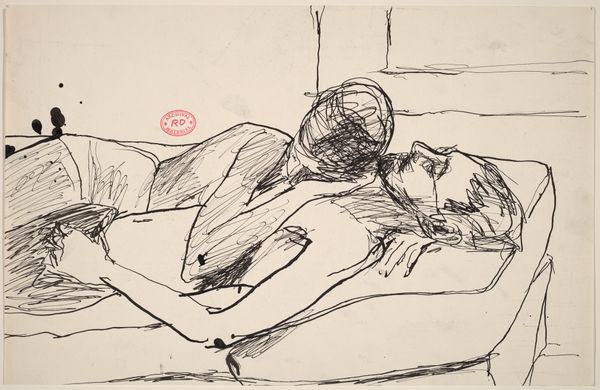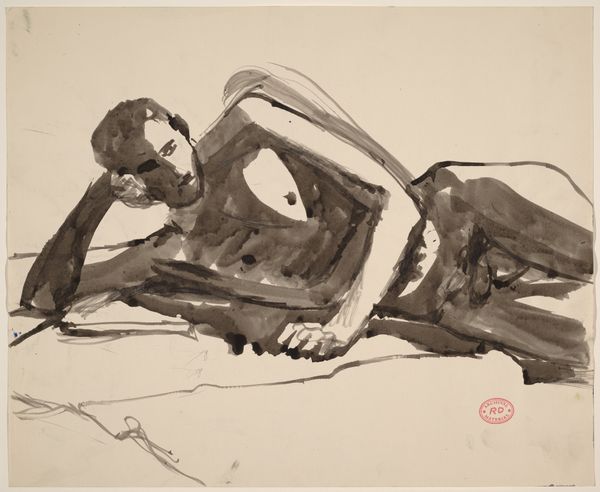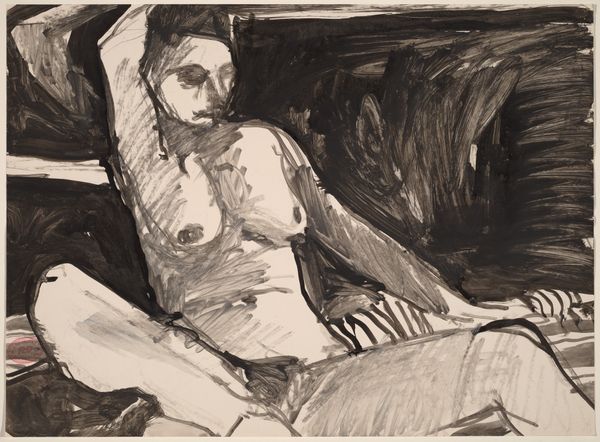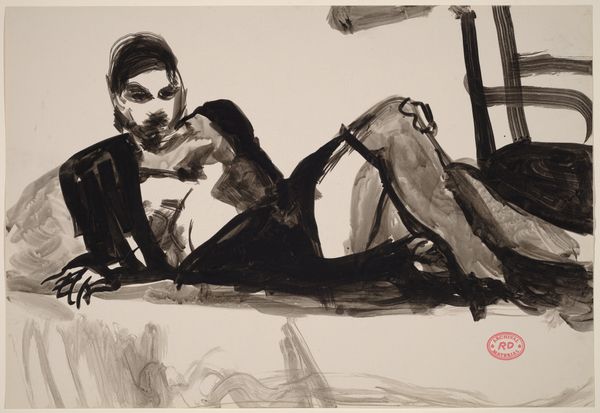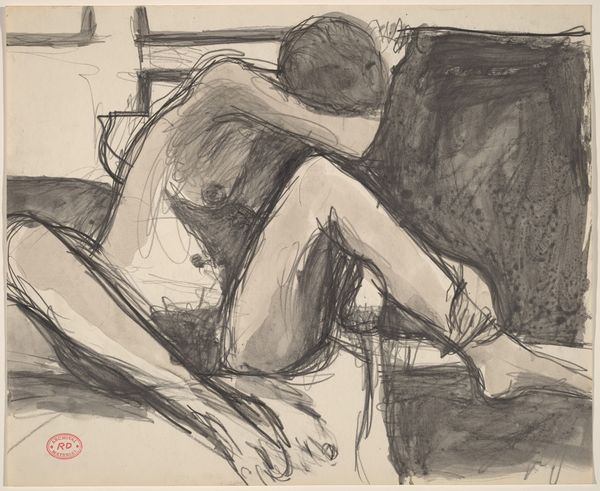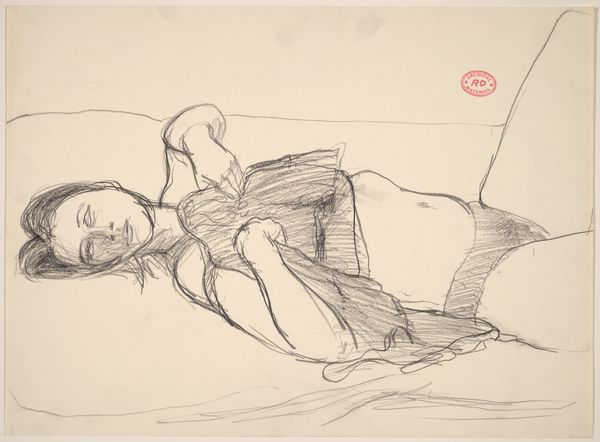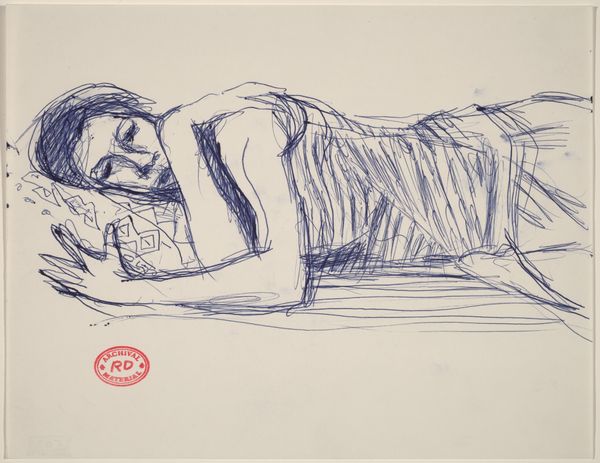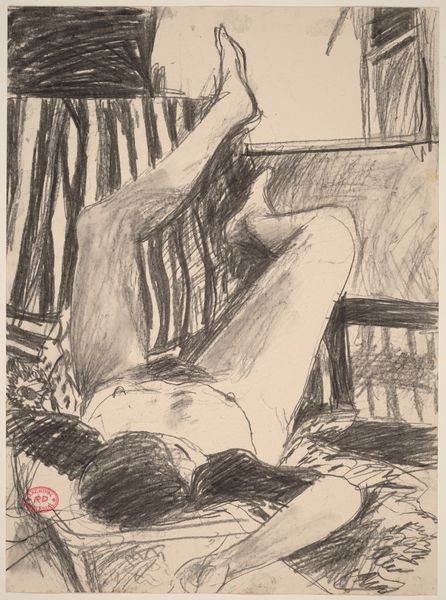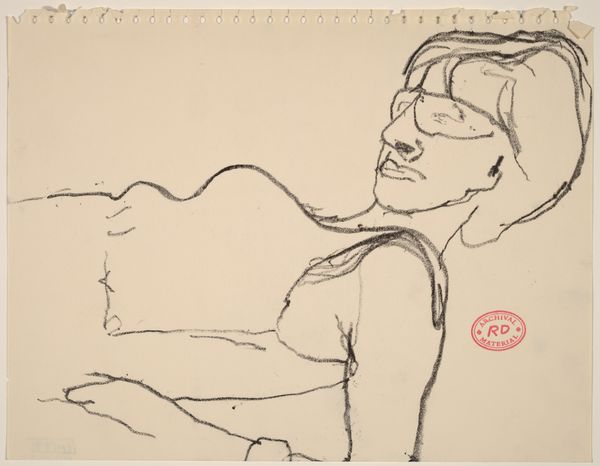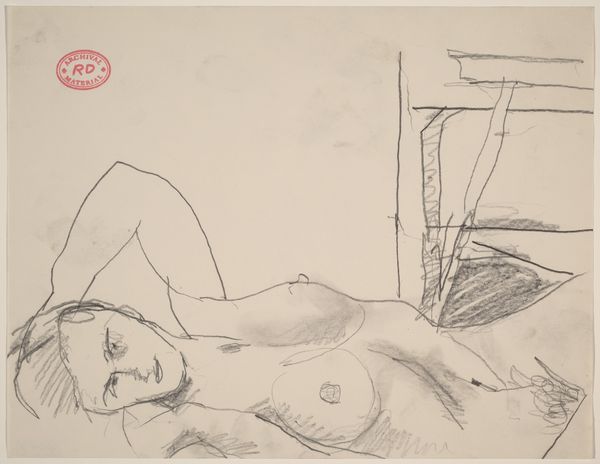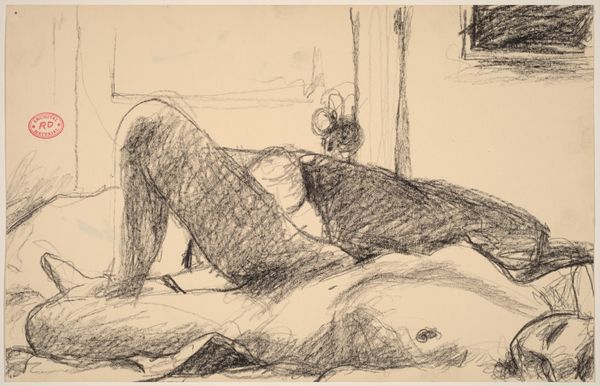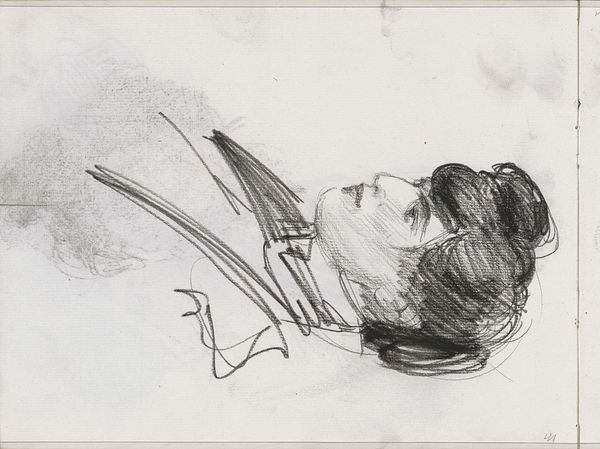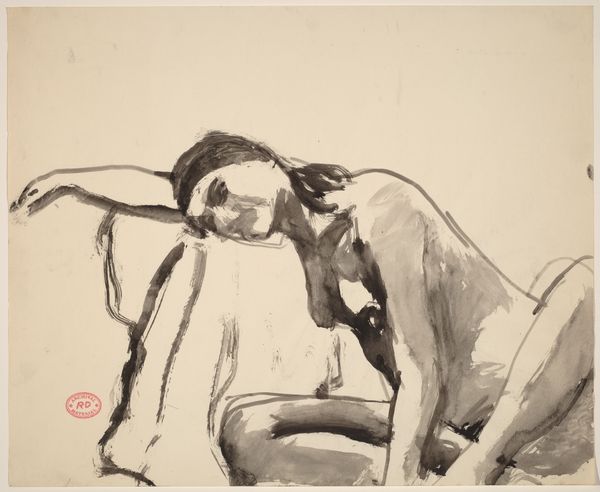![Untitled [nude on her back resting one leg on her knee] by Richard Diebenkorn](/_next/image?url=https%3A%2F%2Fd2w8kbdekdi1gv.cloudfront.net%2FeyJidWNrZXQiOiAiYXJ0ZXJhLWltYWdlcy1idWNrZXQiLCAia2V5IjogImFydHdvcmtzLzk1NjFhZmYyLTRlZjEtNGMzNy04Y2JhLTM3NTFkMGEwYzk4NC85NTYxYWZmMi00ZWYxLTRjMzctOGNiYS0zNzUxZDBhMGM5ODRfZnVsbC5qcGciLCAiZWRpdHMiOiB7InJlc2l6ZSI6IHsid2lkdGgiOiAxOTIwLCAiaGVpZ2h0IjogMTkyMCwgImZpdCI6ICJpbnNpZGUifX19&w=3840&q=75)
Untitled [nude on her back resting one leg on her knee] 1955 - 1967
0:00
0:00
drawing, ink
#
portrait
#
abstract-expressionism
#
drawing
#
figuration
#
bay-area-figurative-movement
#
ink
#
ink drawing experimentation
#
arch
#
portrait drawing
#
nude
#
portrait art
Dimensions: overall: 43.2 x 31.8 cm (17 x 12 1/2 in.)
Copyright: National Gallery of Art: CC0 1.0
Curator: This ink drawing by Richard Diebenkorn, titled “Untitled [nude on her back resting one leg on her knee]”, dates roughly between 1955 and 1967. Editor: It strikes me immediately as an exercise in contrasts. The stark blacks and the untouched white of the paper, the fluid lines against the blocky shapes. Curator: Indeed. Diebenkorn's formal choices create an interesting tension. Note the layering of washes; how they define form, especially in the figure’s torso and legs. It almost appears as if he’s revealing and concealing simultaneously. Editor: Do you think the absence of defining features – a face, specific details – serves to depersonalize the figure? There's something almost sculptural in its anonymity, removing the individual from their immediate social context. The ink-drawing experimentation also evokes Japanese painting styles. Curator: The interplay between representation and abstraction is key here. While undeniably a figure study, Diebenkorn prioritizes the exploration of line, tone, and spatial relationships over mimetic accuracy. Editor: It’s curious to imagine its location within Diebenkorn’s practice. Did he produce this amidst larger, more public-facing abstract works? How does it connect to other contemporary figural explorations? Did this affect the production, distribution, and critical view of the image? Curator: Well, by this period, he'd moved into a more figurative approach, evident in his later work. It suggests that the academic rigor might not have necessarily fit well within contemporary expression. Editor: I suppose that leaves it a matter of viewer’s interpretation whether they see it in contrast to contemporary forms of the 50s-60s or as a further extension of form. Overall it’s very intriguing piece to study from historical or technical angles. Curator: Agreed. Hopefully the artwork has been enlightening for you today. Editor: Indeed, a stimulating example of form's influence over presentation in the canon.
Comments
No comments
Be the first to comment and join the conversation on the ultimate creative platform.
